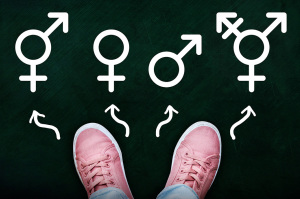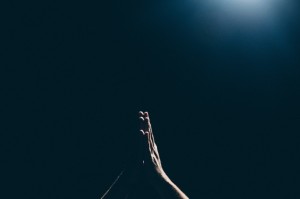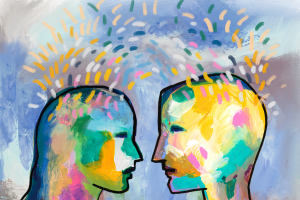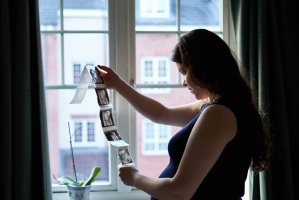God wrecked me by what I saw in the Dominican Republic
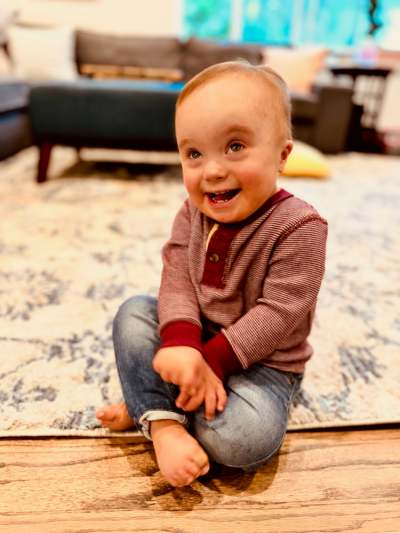
When my team at Compassion traveled to the Dominican Republic for a work trip, I expected to be moved by the work of the local church in the lives of kids and families in our program. What I didn’t expect was for God to wreck me.
We spent some time visiting homes in the field, and we met a family whose house had been swept away by recent storms. When we asked where they were staying, they explained that they were living with their next-door neighbor’s family until they could rebuild. As we left, they showed us the tiny home that was now housing two families.
When I looked through the open doorway, I noticed a teenage boy on the bed. He was maybe 13 or 14 years old, and he had Down syndrome. His legs were weak and frail, and it appeared from his lack of muscle tone and the way he scooted to the edge of the bed to look up at me that he had likely never learned to walk.
As we left the home and walked along the road, I asked one of our Dominican staff members if the boy was in our program, and she said that the local church didn’t have the resources to support his level of need. I asked what it would take for the program to support him, and she explained that the church would need the right accommodations to handle his disability, special training for the staff, and a social worker. While some larger cities were better equipped to address his needs, the cost was too expensive for the rural community church to take on.
I wept for the next 20 minutes.
The boy’s family clearly loved him. They had done everything they could to clothe, feed, and care for him, but his options were limited based on the available resources in his community. I knew this boy should have more, and I knew this could have been my son if he had been born in a different place.
My son Cade is two years old, and he has Down syndrome — the same disability as this boy. It’s hard to explain, but your child’s disability connects you to other kids with the same disability. You feel protective of that child’s struggles and story — even their family members.
I instantly felt that. And I thought of my son. He’s already starting to walk. He’s chubby. He’s sweet and ornery and 100% toddler. Not only do we know that he’ll walk and be potty trained and go to school, but we expect that he’ll make friends, find a job, and enjoy the world around him.
With a big support network and resources like early intervention therapies where we live in the US, his world isn’t limited by circumstances like poverty.
In low-income countries, disability funding is often limited, and support services can be out of reach for families struggling to survive. Even in high-income countries, societies and communities aren’t always built with the disabled community in mind. They might have more resources, but they still have to overcome hurtful stigma, inaccessible environments, and unsupportive systems to receive the services they deserve. The result is more than 200 million children living with disabilities — 1 in 10 children worldwide — being denied basic rights like receiving education.
My trip to the Dominican Republic showed me how profoundly different a child’s life could look when they can’t access essential support. My colleague Amberle Brown, a monitoring and evaluation specialist for gender, equity, and social inclusivity (GESI) at Compassion, explains, “Children with disabilities are often pushed to the edges of society. Because disability and poverty perpetuate each other, these children also tend to be the poorest of the poor.”
We have to do better, which is why Compassion is developing disability-inclusive interventions for each of our 8,500+ frontline church partners around the globe. Brown continues, “We’re motivated by the thousands of children in our Compassion family with disabilities, the millions more in the world that we want to surround with the love of Jesus, and Jesus’ own example of inviting people with disabilities in.”
More than 28,000 children with disabilities are currently registered in our program. These kids receive the unique support they need to step into their God-given potential, and every day, our local church partners see this impact in action as kids with disabilities break down barriers and achieve incredible things.
In Burkina Faso, 15-year-old Kader’s single mom couldn’t afford to send him to a specialized school for blind students until Compassion’s church partner covered the cost. As it turns out, Kader is such an excellent student that he won the President’s Prize for being the nation’s top student with a visual disability.
Doctors predicted Melany, who has Down syndrome, would never walk. After her center in El Salvador provided access to ongoing therapy, she took her first steps at 18 months old, even earlier than my son Cade. Now at age 3, she’s not only walking — she’s running, climbing, and apparently always searching for toys.
When I hear stories like this, I’m encouraged by God’s goodness and faithfulness, but the work is nowhere near finished. This Sunday, December 3, is International Day of Persons with Disabilities. As of today, we have 369 children in our program with physical or intellectual disabilities waiting for a sponsor — and so many more we want to welcome into the program.
When I returned home and told my husband about my experience in the Dominican Republic, we decided to sponsor two additional kids with disabilities. Our son might never fully understand poverty, but we want him to know that there are kids like him all over the world who might not have everything they need.
People with disabilities don’t need our pity. They need us to champion their worth, see and celebrate them for everything they are, help them access resources that will give them the fullest life, and advocate for them to the best of our ability.
It’s not a quick or easy fix, but the least of these is who we’re called to.
The world looks at disabilities and just sees the challenges. It’s not that we don’t see our son’s challenges. It’s just not all we see. When we look at him, we see the redemptive nature of God and the beauty he uniquely brings into the world because of his Down syndrome. And children with disabilities in a poverty context deserve to be known, loved, and protected in the same way.
Mallory Krumsieg is the global campaigns lead on the experience design marketing team at Compassion International. She lives in Colorado with her husband and son.















